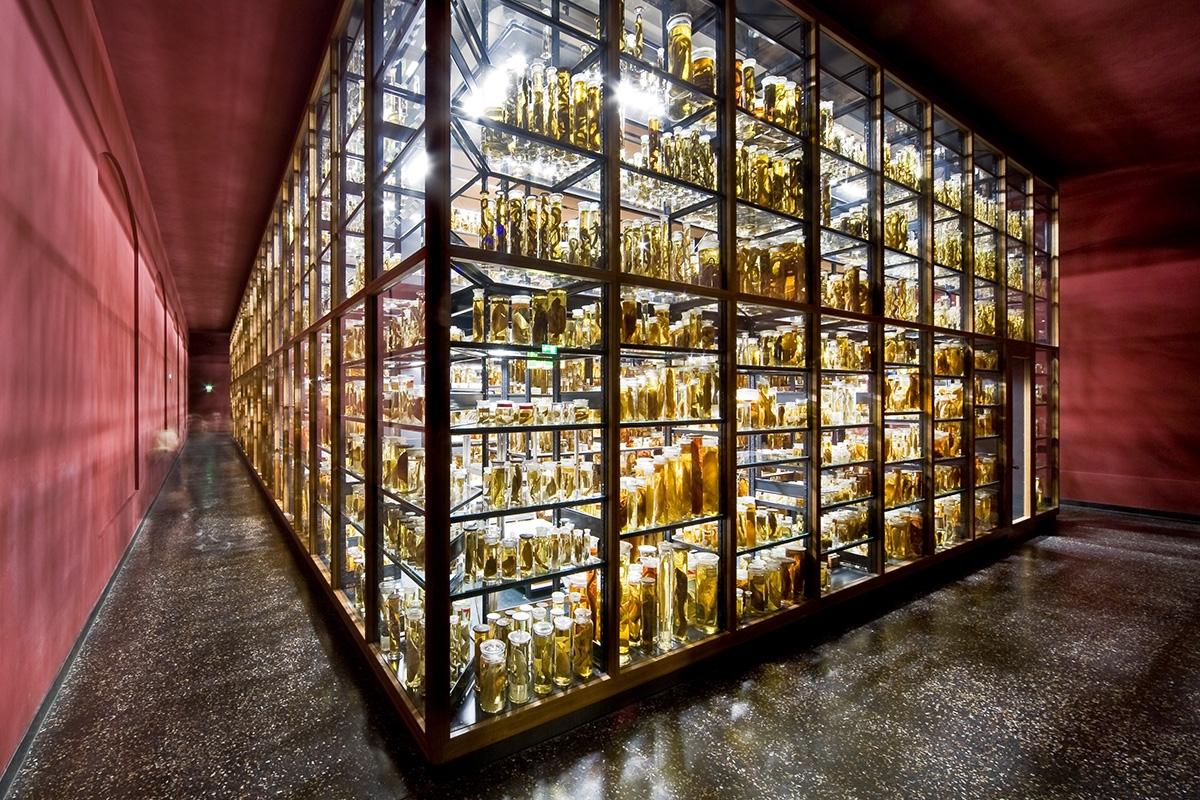The training Basic Collections Techniques is an introductory module on care and management of natural history collections aimed at professionals that have limited experience with collection work or those who wish to update their knowledge in this field. This training will consist of three main types of content: a block on preventive conservation, a block on documentation, digitization and labelling and an introduction to collection types including aspects of dry and wet collections with their specific requirements. This training will provide a brief insight into the most essential topics of basic collection care and management, including aspects of preservation and preventive conservation.
Shipping workshop: The training Basic Collections Techniques is followed by an optional one-day training on shipping specimens internationally. This is an introduction to sending out collection objects in compliance with all legal and regulatory requirements. Basic Collections Techniques and Shipping Workshop can be combined to a whole week of training in Berlin or online.
Event information
- Hybrid meeting, for in-person-meeting, COVID-19 measures apply (see below)
- Event in English
- For new collection professionals or those who wish to update their knowledge
- Registration required, no registration fee. Please register at: info.cec@mfn.berlin
- Contact: Centre of Collections, e-mail info.cec@mfn.berlin
- Funded by Aktionsplan II Leibniz Research Museums (https://www.leibnizforschungsmuseen.de/en/aktionsplan-leibniz-research-museums/aktionsplan-ii-a-world-in-motion).
Basic Collections Techniques topics covered
Preventive Conservation: climate, light, VOCs and detection, disaster preparedness, moving collections, integrated pest management, biocides (health and safety)
Data documentation, digitization and labelling: handling of field data, registration, data cleaning, database, types of digitization, requirements for object digitization, workflows in mass digitization, labels in wet collections, labels in dry collections
Basic techniques in collection care: A: Dry collections: entomological collections, skins and bones, paleontological collections (esp. amber), mineralogical collections, botany collections; B: wet collections, properties of ethanol, denaturing agents, jars, lids, issue of ph in wet collection etc.
COVID-19
Covid-19 rules apply: in person training is only available to persons who present proof of full vaccination (Pfizer-Biontech, Moderna, Astra Zeneca or Johnson and Johnson vaccines) or recovery of Covid-19 infection (i.e. between 28 days and six months after positive PCR-test, otherwise: vaccination) or a daily negative test for this pandemic. N.B. should the requirements issued by the authorities towards an in-person-meeting change, the rules specified above will be adjusted accordingly. In the worst of cases, the in-person part of the workshop will also have to be held online.
Agenda
Basic Collections Techniques Workshop at the Museum für Naturkunde, Berlin:
All times are indicated in Central European Time (UTC+1)
Nov. 22, 2021 Monday
- 13:15 h Welcome and Introduction
- 13:30 h Preventive Conservation - Climate and Light: Stefan Simon, Rathgen-Forschungslabor; Staatliche Museen zu Berlin
- 15:00 h Preventive Conservation - Disaster Preparedness: Peter Giere, Museum für Naturkunde, Berlin
- 16:00 h Coffee Break
- 16:30 h Preventive Conservation - VOCs and Detection: Alexandra Jeberien University of Applied Sciences, Berlin
- 17:30 h Optional: Tour - Disaster Preparedness
Nov. 23, 2021 Tuesday
- 09:00 h Preventive conservation - Moving collections: Vera Garvens, Römisch Germanisches Zentralmuseum, Mainz, Gina Eichmüller
- 10:30 h Coffee break
- 11:00 h Preventive Conservation - Integrated Pest Management: Bill Landsberger, Rathgen-Forschungslabor, Staatliche Museen zu Berlin
- 12:30 h Lunch Break
- 14:00 h Dry Collections - Herbaria: Karsten Wesche, Senckenberg Museum für Naturkunde Görlitz
- 15:00 h Health and Safety - Biocides: Christiane Quaisser, Edda Aßel, Museum für Naturkunde, Berlin
- 16:00 h Coffee Break
- 16:30 h Documentation and Digitization - Digitization: Frederik Berger, Museum für Naturkunde, Berlin
Nov. 24, 2021 Wednesday
- 09:00 h Tour of the Collection
- 10:30 h Coffee break
- 11:00 h Documentation and Digitization - Labelling: Dirk Neumann, Bavarian Natural History Collections, Peter Giere, Museum für Naturkunde, Berlin
- 11:45 h Dry Collections - Mineralogy: Ralf Thomas Schmitt, Museum für Naturkunde, Berlin
- 12:30 h Lunch Break
- 14:00 h Dry Collections - Paleontological Collections, Amber: Eva-Maria Sadowski, Museum für Naturkunde, Berlin
- 15:00 h Documentation and Digitization - Documentation: Mareike Petersen, Falko Glöckler, Christian Bölling, Museum für Naturkunde, Berlin
- 16:30 h Coffee Break
- 17:00 h Tour of the Collection
Nov. 25, 2021 Thursday
- 09:00 h Dry Collections - Skins and Bones: Steffen Bock, Peter Giere, Museum für Naturkunde, Berlin
- 10:30 h Coffee break
- 11:00 h Dry Collections - Entomological Collections: Volker Lohrmann, Überseemuseum Bremen
- 12:30 h Lunch Break
- 14:00 h Wet Collections - Wet Collections I: John Simmons, Museologica
- 15:00 h Wet Collections - Wet Collections II: John Simmons, Museologica
- 16:00 h Coffee Break
- 16:30 h Wet Collections - Wet Collections III: John Simmons, Museologica
Nov. 26, 2021 Friday
- 08:50 h Welcome
- 09:00 h Shipping Workshop - Legal requirements overview: Dirk Neumann, Bavarian Natural History Collections
- 09:30 h Shipping Workshop - Veterinary legislation: Dirk Neumann, Bavarian Natural History Collections
- 10:00 h Shipping Workshop - CITES and species protection: Peter Giere, Museum für Naturkunde, Berlin
- 10:30 h Coffee break
- 11:00 h Shipping Workshop - IATA regulations, IATA training: Dirk Neumann, Bavarian Natural History Collections
- 11:45 h Shipping Workshop - Customs laws and regulation: Dirk Neumann, Bavarian Natural History Collections
- 12:30 h Lunch Break
- 14:00 h Shipping Workshop - Packing, Labelling and Shipping: Dirk Neumann, Bavarian Natural History Collections
- 15:00 h Shipping Workshop - Nagoya Protocol, ABS: Peter Giere, Museum für Naturkunde, Berlin
- 16:00 h Coffee Break
- 16:30 h Discussion
